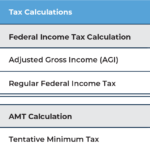Despite the ongoing shift to an increasingly digital world of automatic electronic verification of everything from transactions to identity, the reality is that today, there are still a number of documents that individuals must be able to provide to various companies, regulators, or government agencies. In some cases, those entities will at least accept digital copies of the relevant paperwork or supporting documentation, while in other cases “original” hard-copy versions are required. Which in practice has made it extremely difficult for many households to even figure out what to keep in physical form, what can be scanned and retained digitally, what can be discarded, and what must be shredded.
In practice, though, there is no hard-and-fast rule about what documents should be retained (or not). The process of figuring out “what to keep” (in physical or digital format) and “what to shred” depends on the nature of the document and what it will be used for.
For instance, tax documents generally only need to be kept for 6 years (the statute of limitations, even if there is a substantial misstatement of income), and under Revenue Procedure 97-22, such documentation can be retained entirely in digital (and not physical) format, as long as the scanned/photographed copy contains all of the relevant information.
On the other hand, documents pertaining to personal identification (e.g., Social Security card, birth certificate, and Driver’s license) must be kept in original physical form (and should be kept permanently), along with key legal documents (e.g., Wills and trusts and Powers of Attorney), in order to be able to help prove their authenticity.
When it comes to the documentation of assets and liabilities (from real estate or other ownership records, to credit cards, mortgages, and other debt), records must be retained as long as the asset is owned (or the liability is owed). Or in the case of documentation like insurance claims, as long as the claim remains open.
Storage of key documents in practice will vary by household, but important physical documents are typically stored in a home safe, a safe deposit box (though important legal documents should not be held there, as they may be necessary to access the box, which is impossible if they’re in the box!), or even the safe of an attorney’s office. For those that prefer digital storage (for documents that can be stored digitally), external hard drives and thumb drives have long been popular, although cloud-based solutions are increasingly popular (particularly for their redundant back-ups, and the ability with some systems to designate Trusted Contacts to access the information in the event the primary owner is deceased or incapacitated).
Ultimately, a checklist of key documents to retain (and how long to retain, and in what form) can be helpful as a way to be certain that all the important documents are covered. For financial advisors, this can actually be a pathway to reinforce value for clients, by actually going through such a document checklist with clients, helping them determine what to keep and what to discard, and even offering ‘shred-it’ days for clients to help them get their own financial households better organized!







 Welcome back to the 234th episode of the Financial Advisor Success Podcast!
Welcome back to the 234th episode of the Financial Advisor Success Podcast!

